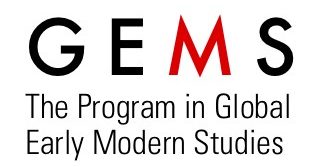Apply by Nov 13 | Folger Institute workshop on Race, Place, and the Nonhuman in Early Modernity
Please note that scholars, teachers, artists, and activists are welcome to apply to attend:
Race, Place, and the Nonhuman in Early Modernity (spring weekend workshop)
Organized by Hillary Eklund and Debapriya Sarkar
How can early modern literature, art, and philosophy help us expand the range of available models for just, situated creation? How might we rethink entanglements of mastery, power structures, and exceptionalism? What methods must we envision to engage ethically with intertwined formulations of race, place, and the nonhuman? This workshop invites scholars, teachers, artists, and activists to explore and interrupt the legacies of early modern racial and environmental injustice. Early modern ideas of racial and cultural difference were often linked to geography and climate. At the same time, categories of animality and monstrosity were used to dehumanize colonized people and inscribe upon their bodies the alienness of foreign geographies. To examine these intersections, we aim to bring the environmental humanities – with its tendency to focus on the physical world and center the nonhuman – into conversation with work on race and empire that exposes why the “human” is still too fraught a category for many kinds of decentering and reveals why considerations of place must attend to modes of habitation.
Organizers: Hillary Eklund is Associate Professor of English at Loyola University New Orleans. She is the author of Literature and Moral Economy in the Early Modern Atlantic (2015), editor of Ground-Work: English Renaissance Literature and Soil Science (2017), and co-editor of Teaching Social Justice Through Shakespeare (2019). Recent work on the environmental humanities and empire appears in SEL, Criticism, and ELR. Debapriya Sarkar is Assistant Professor of English and Maritime Studies at University of Connecticut. She is the co-editor of “Imagining Early Modern Scientific Forms” (special issue, Philological Quarterly, 2019) and author of Possible Knowledge: The Literary Forms of Early Modern Science (2023). Her current research engages PCRS, ecocriticism, and postcolonial theory to examine the “disposable forms” pervading early modern writing.
Schedule: Thursday evening, Friday, and Saturday, May 16-18, 2024.
Apply: November 13, 2023. Please note that scholars, teachers, artists, and activists are welcome to apply.
Questions? Please email owilliams@folger.edu.




